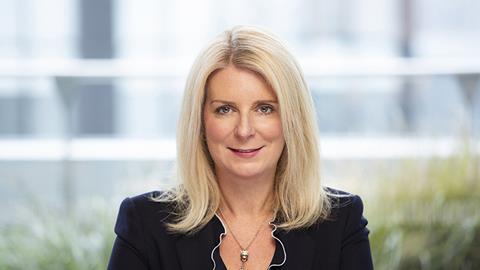Jennette Newman, partner at Clyde & Co and president of London FOIL
I felt that a law degree would be a great way to commercialise my interest in business and the economy. It would also give me plenty of opportunity for problem-solving, which I really enjoy.
I trained with Campbell Hooper Courtney, a small firm. I joined as a trainee and quickly had a full caseload, supporting the senior partner. The cases were a mixed bag – commercial disputes, together with criminal and white-collar crime – as well as non-contentious property and tax cases. I ran my first trial as a trainee and it was great experience. I knew that by choosing this route rather than joining the magic circle, I would be hands-on very early in my career, which I loved.
I already had a good understanding of a wide variety of law plus experience of court, advocacy, litigation and corporate work. Having undertaken commercial litigation and defence, it was a natural pathway into insurance law and insurance corporations. Insurance law was, and is, a great place to develop a wide portfolio of client relationships and still be involved in cutting-edge cases. The people and relationship aspect of what I do is very important to me.
The most challenging cases in my area of law are the major incidents. These cases may involve multiple parties, contracts and liabilities, plus many victims who have been affected by sustaining life-changing injuries, loss of livelihood/business interruption or even death. The resolution of these cases involves multiple insurers, layers of cover and, of course, sensitive and careful case management towards the individuals and families most involved. Ultimately, such cases require a combination of project management, interpersonal and of course legal skills and insight, often in the glare of intensive publicity.
There have been many memorable career highlights and they all involve cases where I have been able to make a tangible difference for an individual or a company. For example, I worked with the chairman in charge of a residential home who was at the point of retirement when there was an explosion that killed two people. As part of the resolution of the disputes arising from this incident, we also defended the chairman in health and safety criminal proceedings and the charges were ultimately dropped. Making a difference for someone in a significant dispute is satisfying.
Much depends on how London adapts to other systemic challenges that all countries and markets face around rapid advances in technology
I have been at Clyde & Co for about six months and the real standout difference for me is just how global the practice is and how broad the thinking. I think the firm understands better than most the complexity and interconnected nature of the risks faced by insurers and their clients. That is down to our global reach and sector focus. For example, when we look at issues, opportunities and threats for our clients around major trends like cyber or climate change, we are not doing so in silos or even sector by sector, but looking at them across the piece – and that is really refreshing.
London has been, and in my view always will be, a key global centre for (re)insurance – and Brexit won’t change that. But that is not to say Brexit does not pose challenges, some of them serious, which the industry needs to address. The ability to write business, access capital and pay claims across the continent are important but so too is access to a ready supply of talent. Longer-term, much depends on how London adapts to other systemic challenges that all countries and markets face around rapid advances in technology and the changing nature of risk. The London market has always adapted and evolved, and it is going to need to carry on doing so, probably at speed.
The London market is at a time of rapid and critical change in terms of Brexit, market modernisation and the fourth industrial revolution. London Forum of Insurance Lawyers has been established at the behest of the (re)insurance industry to focus on the challenges these changes pose for Lloyd’s and the London markets.
At a high level, as London FOIL president I want to focus on market modernisation and talent and diversity. But at a deeper level I want to challenge the (re)insurance industry to identify its biggest areas of need – maybe energy, cyber, emerging risks. Then I will work with the specialist groups within FOIL to ensure we prioritise key areas.
































1 Reader's comment